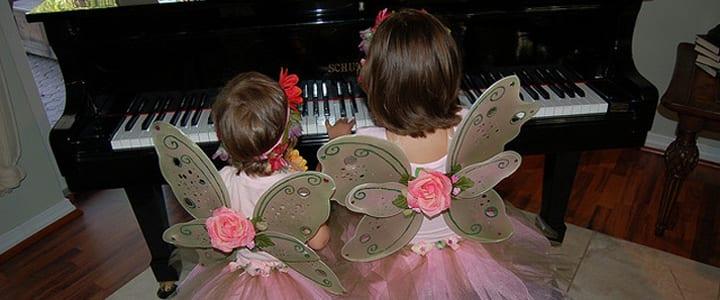Is your child’s piano practice falling by the wayside? Make sure he or she continues to get the most out of piano lessons with these practice scheduling tips from Saint Augustine, FL piano teacher Heather L…
The concern that I hear the most from my students’ parents regarding their children’s piano lessons is practicing and schedules. A parent will tell me, “She’s just not practicing.” The child then replies, “I had so much/many homework/sports games/club meetings that I forgot.” A piano practice schedule helps to solve this challenge.
If a child sees his piano practice as simply another part of his homework time, or even his chore time, then you might find him practicing much more consistently. A child who practices more consistently will be less frustrated with the instrument, and let’s face it, you’ll know that you’re getting your money’s worth out of the lessons. As a reminder, most piano instructors agree that piano practice should generally happen daily, with one day of the week off.
Setting up a piano practice schedule for your little pianist is simple. Here’s a list of easy steps.
1. Take a look at her current schedule.
If you haven’t yet, write out her schedule as it is right now, including all meetings and extracurricular activities. Look for spots where she could use a creative outlet kind of break. Is there one night during the week where she’s swamped with math homework? Does gymnastics practice on Mondays leave her stressed? Making the piano practice session a little longer than usual on these days may help to take the edge off, since playing music has such stress-relieving effects. Who knows? Your pianist might end up really looking forward to extra piano time!
2. Find daily 15-minute increments.
3. Remind and encourage.
Most children need their parents to remind them of their schedules (though sometimes it’s the other way around) and to encourage them lovingly. This helps their process of learning self-discipline and self-motivated. Setting an alarm clock or your smartphone to begin and again to end the practice session, and yet making the session a time of both focus and creativity, helps a lot. Contrary to popular belief, overbearing and harsh discipline often has a detrimental effect, especially when it comes to studying music. Most of the young students who have quit lessons with me over the last decade have quit because their parents have pushed them to the point of frustration and resentment. I believe in setting a high bar for students, but also in balancing high expectations with compassion. Your children will most likely respond with lots of enthusiasm and joy.
4. Record daily practice.
The most successful and experienced teachers and parents that I know are those who keep a daily record of piano practice. Even if it’s just a simple checklist with stickers for each daily practice session, you’ll find that keeping your little pianist accountable, specifically on paper (which he can’t argue with), can start what one could call a practice habit. And that’s exactly what you’re looking for.
The primary goal of a piano practice schedule for your child, though it may take months, is a self-motivated, self-disciplined student whose piano practice is a part of his daily routine. He takes his practice seriously, and yet keeps it all in perspective. Keep a firm sight of that goal, follow these steps, and you’ll get there together.
 Heather L. teaches singing, piano, acting, and more in Saint Augustine, FL, as well as through online lessons. She is a graduate of the prestigious Westminster Choir College in Princeton, New Jersey, and has performed with the New York and Royal Philharmonics, the New Jersey and Virginia Symphonies, the American Boy Choir, and the internationally renowned opera star, Andrea Bocelli. Learn more about Heather here!
Heather L. teaches singing, piano, acting, and more in Saint Augustine, FL, as well as through online lessons. She is a graduate of the prestigious Westminster Choir College in Princeton, New Jersey, and has performed with the New York and Royal Philharmonics, the New Jersey and Virginia Symphonies, the American Boy Choir, and the internationally renowned opera star, Andrea Bocelli. Learn more about Heather here!
Photo by Flo’s Shots 4 Me
Suzy S.

